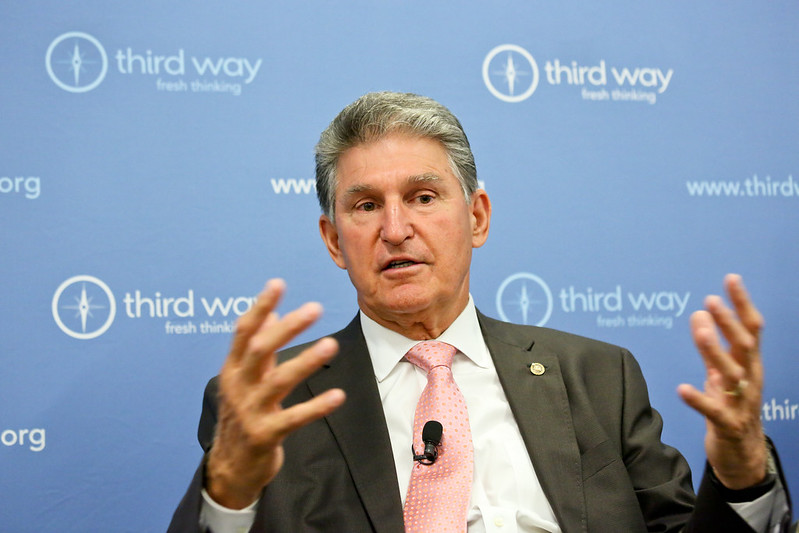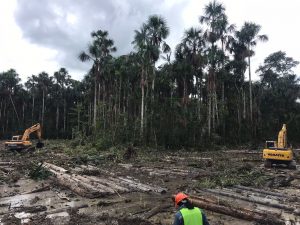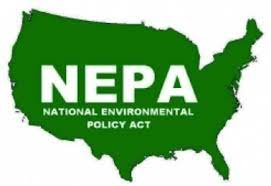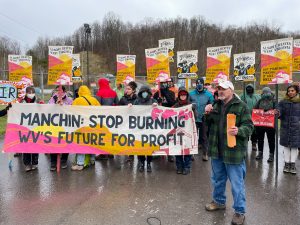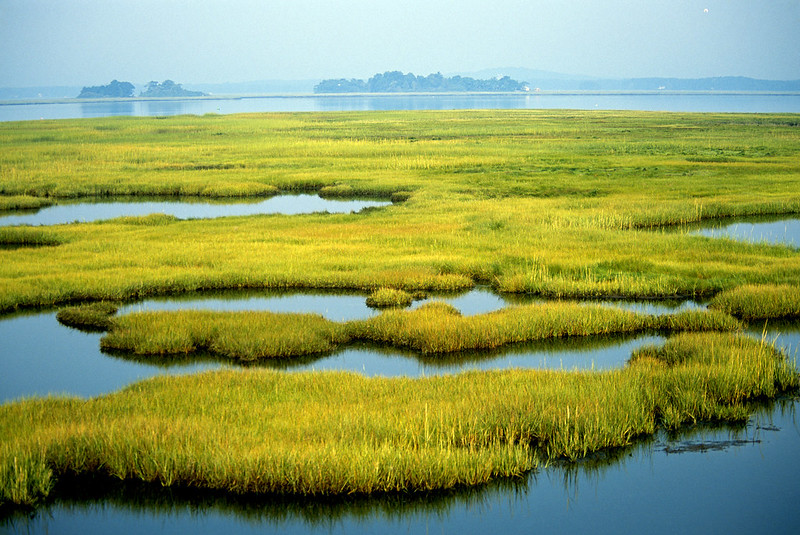“Uranium contamination in a system like this is forever and while the mining company can walk away, the Havasupai tribe can’t. This is, and always has been, their home.”
By Brett Wilkins Published 4-29-2022 by Common Dreams
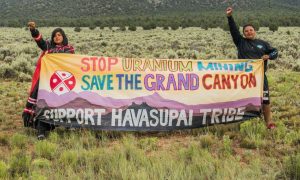
Havasupai activists protest against uranium mining in the Grand Canyon. (Photo: Jake Hoyungawa/Grand Canyon Trust)
Indigenous and environmental activists on Friday condemned an Arizona agency’s approval of a key permit for a uranium mine near the Grand Canyon that opponents say threatens the land, water, wildlife—and Native Americans’ ancestral obligation to safeguard a place they’ve called home for centuries.
The Arizona Republic reports the state’s Department of Environmental Quality on Thursday issued an aquifer protection plan permit for Canada-based Energy Fuels Resources’ Pinyon Plain Mine, located about 10 miles south of the Grand Canyon’s South Rim in Kaibab National Forest.
Conservationists and tribes have long opposed the mine, which has been in various stages of planning and preparation since 1984 but from which no uranium has yet been extracted. The Havasupai people, some of whom live in a nearby canyon, say the project imperils their sole source of drinking water.
“Mining uranium in the Grand Canyon watershed threatens the enduring legacy of this landscape and jeopardizes the entire water supply of the Havasupai people,” Michè Lozano, Arizona program manager for the National Parks Conservation Association (NPCA), said in a statement, warning of the “incredible threats that uranium mining poses to the limited underground sources that feed the canyon’s creeks and waterways.”
According to NPCA:
The mine… has a history of flooding as it depletes shallow groundwater aquifers that express at South Rim springs. It also threatens to permanently contaminate deep aquifers that feed Havasu Creek and other springs. The approval comes despite calls by the Havasupai Tribe and conservation groups to close the Pinyon Plain Mine given its risks to water and tribal cultural resources…
In late 2016 mineshaft drilling pierced shallow aquifers, causing water pumped from the mine to spike from 151,000 gallons in 2015 to 1.4 million gallons in 2016. In the years since then, inflow has ranged from 8.8 million gallons in 2017 to 10.76 million gallons in 2019; most recently, the mine took on 8,261,406 gallons of groundwater in 2021.
Since 2016, dissolved uranium in that water has consistently exceeded federal toxicity limits by more than 300% and arsenic levels by more than 2,800%.
“Neither regulators nor the uranium industry can ensure that mining won’t permanently damage the Grand Canyon’s precious aquifers and springs,” said Taylor McKinnon of the Center for Biological Diversity. “This permit strenuously ignores science showing the potential for deep aquifer pollution, and in a region still plagued by seven decades of uranium industry pollution, risking more, as this permit does, is dangerous.”
Asserting that “uranium mines do not belong among the complex groundwater systems that surround the Grand Canyon,” Amber Reimondo, energy director for the Grand Canyon Trust, said that “uranium contamination in a system like this is forever and while the mining company can walk away, the Havasupai tribe can’t. This is, and always has been, their home.”
Havasupai tribal leaders have long argued against uranium mining on lands from which their ancestors were ethnically cleansed to make way for white tourists before being pressed into dehumanizing railroad labor.
One of the staunchest Havasupai mining opponents, the late Tribal Chairman Rex Tilousi, believed that his people “were given a responsibility to protect and preserve this land and water for those yet to come.”
“The ancient rock writing in our canyon tells us to protect this place,” Tilousi said at a 2018 prayer gathering. “The canyon doesn’t belong to us. We belong to the canyon, to the Earth, to the water. It created us and gave us life. We are fighting for our lives and for those who are yet to come.”
Carletta Tilousi, Rex’s niece and a member of the White House Environmental Justice Advisory Council, spoke against uranium mining at an Earth Day rally in Phoenix last week.
“Native Americans, we have struggled so far and so long, and we don’t need it anymore,” she said. “We want to make sure our future generations have clean air, clean water, and a happy life. That’s all we ask for.”
This work is licensed under Creative Commons (CC BY-NC-ND 3.0)
